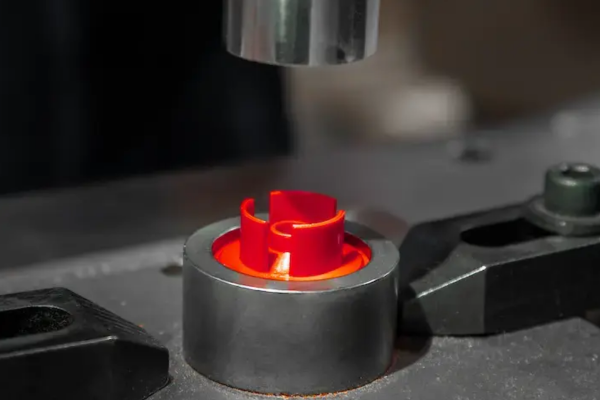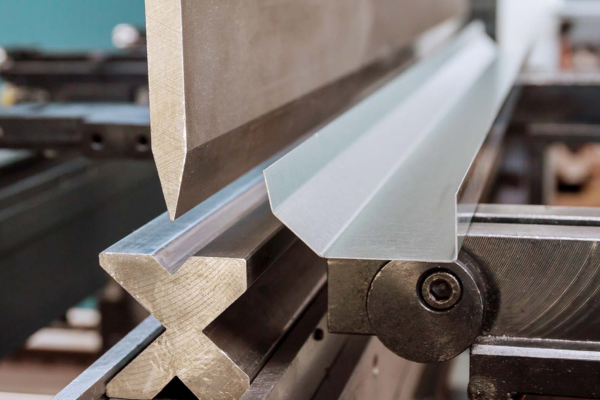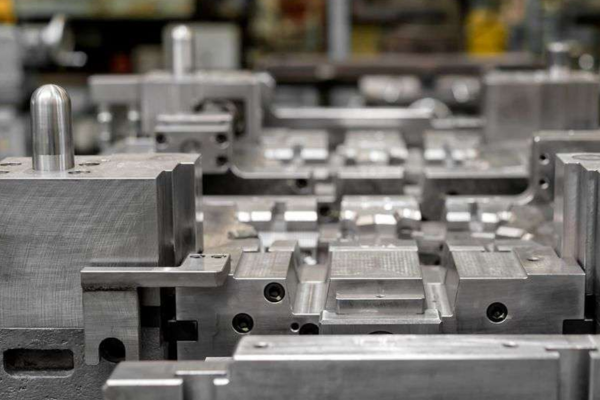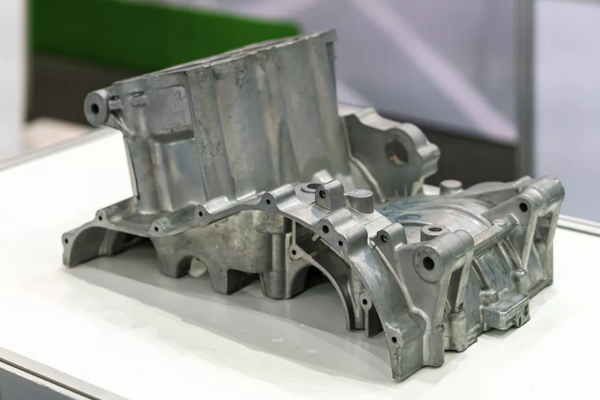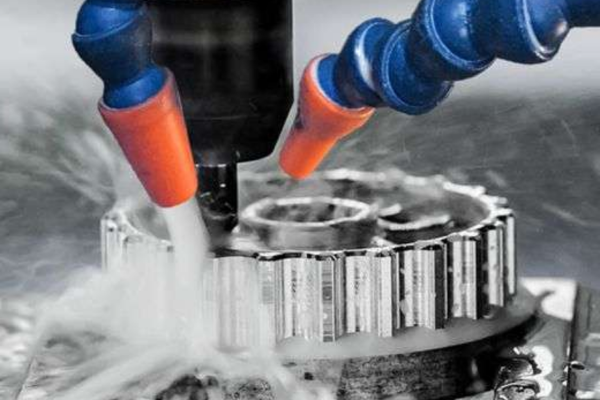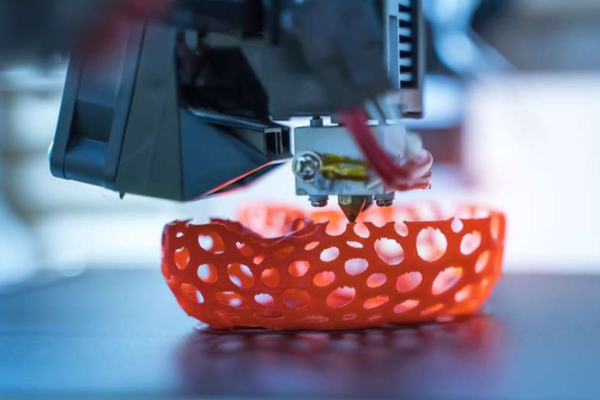Machining Titanium Grade 5 (Ti-6Al-4V) presents a unique challenge. The alloy’s low thermal conductivity and high chemical reactivity mean that excessive heat can concentrate near the cutting zone, causing premature tool wear, built-up edge, and surface micro-cracking.
High-Torque Spindles for Consistent Cutting Power
Titanium requires deeper engagement and slower speeds. XC Machining uses spindles that deliver 100–150 Nm of torque at low RPMs, maintaining constant power throughout the cutting stroke. This ensures uniform chip thickness, stable tool load, and consistent surface integrity during roughing and finishing operations.
Flood or High-Pressure Coolant Delivery
Because titanium dissipates heat poorly, heat management is critical. Our high-pressure coolant systems (up to 80 bar) flood the cutting zone with emulsion or oil-based coolants that both lubricate and cool the interface. The result is a drastic reduction in tool oxidation, galling, and micro-fracturing.
Advanced Tooling and Coatings
XC Machining employs CVD-coated carbide, PVD-coated inserts, and solid-carbide end mills treated with TiAlN / AlTiN / SiN layers. These coatings form a thermal barrier that allows the cutting edge to withstand temperatures above 800 °C without softening. This technology extends tool life by more than 40 % in continuous titanium milling.
Adaptive Tool Paths and CAM Optimization
Our CAM engineers use adaptive machining strategies, trochoidal milling, constant-chip-load paths, and 5-axis synchronized motion, to minimize dwell time, chatter, and deflection. These methods maintain a steady engagement angle and smooth chip evacuation, especially on thin-walled or contoured components.
Machine Rigidity and Damping
A titanium-ready CNC must suppress vibration. XC Machining’s frames feature reinforced bases and polymer-concrete damping structures to absorb harmonic energy during heavy cuts. This mechanical stability ensures micron-level accuracy and surface smoothness even during long production runs.
Where Are Titanium Grade 5 Parts Mostly Used?
Titanium components are essential in industries where strength, corrosion resistance, and weight reduction are critical. Its unique properties make it a go-to material for advanced engineering sectors that demand reliability under extreme conditions. At XC Machining, we manufacture titanium parts that perform flawlessly in some of the world’s most demanding environments.
Aerospace and Aviation
Titanium’s exceptional strength-to-weight ratio makes it a top choice for aerospace applications. It’s used in turbine blades, landing gear, fasteners, and airframe structures, where minimizing weight while maintaining durability is vital. XC Machining produces aerospace-grade titanium components with micron-level accuracy, ensuring compliance with stringent safety standards.
Medical and Healthcare
Titanium’s biocompatibility and corrosion resistance make it ideal for surgical instruments, implants, and prosthetics. XC Machining supplies precision titanium components that meet medical-grade tolerances, ensuring long-term reliability inside the human body without risk of rejection or degradation.
Automotive and Motorsport
In high-performance vehicles and motorsport engineering, titanium is used in suspension systems, valves, and exhaust assemblies. Its lightness improves power-to-weight ratio and heat resistance. XC Machining’s precision titanium machining ensures these components withstand extreme vibration and temperature conditions.
Energy and Marine Industries
Titanium’s resistance to seawater and chemical corrosion makes it a prime material for offshore drilling, subsea systems, and heat exchangers. XC Machining delivers titanium parts that maintain stability under constant exposure to saltwater, pressure, and heat, extending equipment lifespan in these challenging environments.
Defense and Industrial Applications
In defense manufacturing, titanium is used for armor plating, weapon housings, and optical instrument mounts due to its durability and lightweight nature. XC Machining supports defense clients with reliable titanium parts that combine performance, precision, and structural integrity under battlefield conditions.


